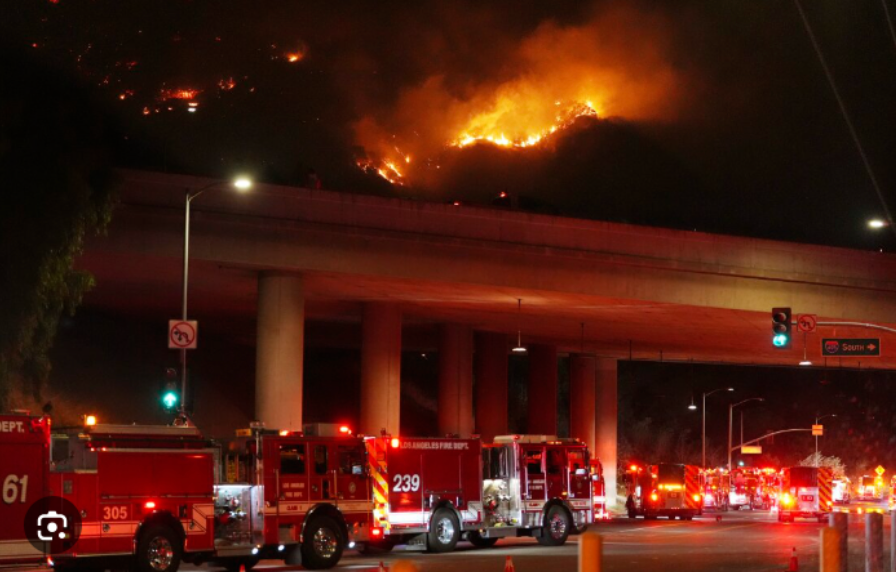27 feedback loops, or global warming accelerators, add urgency to respond to climate crisis: Study
- Rhia Gopinath
- Feb 19, 2023
- 3 min read

Scientists in Washington have found 27 "global accelerators" also known as feedback loops/mechanisms, some that the researchers said may not be fully accounted for in climate models.
Because of this finding, scientists have highlighted a need to respond to the climate crisis.
in climate science, amplifying feedback loops, or positive feedback mechanisms are situations where a climate caused alteration/amendment can stimulate a process which in turn, causes even more global warming that boosts the alteration even further. For example, the melting of the Arctic ice
The findings have been reported in the journal One Earth.
The study in all looked at 41 climate change feedbacks.
"Many of the feedback loops we examined significantly increase warming because of their connection to greenhouse gas emissions," OSU College of Forestry postdoctoral scholar and one of the lead researchers Christopher Wolf said.
"To the best of our knowledge, this is the most extensive list available of climate feedback loops, and not all of them are fully considered in climate models. What's urgently needed is more research and modelling and an accelerated cutback of emissions," said Wolf.
Forest dieback, soil carbon loss, and wildfire were examples of biological feedbacks, whereas declining Arctic sea ice, increasing Antarctic rainfall, and lower snow cover are examples of biological and physical feedbacks.
According to the researchers, even relatively mild warming is predicted to increase the risk that the Earth would pass over a number of tipping points, leading to significant changes in the planet's climate system and perhaps intensifying the amplifying feedbacks.
"Climate models may be underestimating the acceleration in global temperature change because they aren't fully considering this large and related set of amplifying feedback loops," Wolf said.
"The accuracy of climate models is crucial as they help guide mitigation efforts by telling policymakers about the expected effects of human-caused greenhouse gas emissions."
The researchers emphasised that despite several decades of warnings that emissions needed to be greatly reduced, emissions had increased dramatically over the past century.
Feedback loop interactions, according to experts, might result in a long-term change away from the Earth's current climatic state and towards one that poses a threat to the existence of many people and other living forms.
Because the operation and status of all Earth systems must be taken into account in order to properly understand the climate, a swift shift towards integrated Earth system science is necessary.
Large-scale cooperation will be needed, and the end result will give policymakers greater knowledge.
In order to reduce emissions "immediately and massively," the document issues two calls to action:
Reduce short-term warming in light of the occurrence of "climate disasters" such as wildfires, coastal floods, permafrost melt, strong storms, and other extreme weather.
Reduce the potential serious risks posed by impending climatic tipping points, which are becoming closer by the day owing to the existence of several amplifying feedback loops. A tipping point is a moment at which a change in a climatic system component starts to self-replicate.
"Transformative, socially just changes in global energy and transportation, short-lived air pollution, food production, nature preservation and the international economy, together with population policies based on education and equality, are needed to meet these challenges in both the short and long term," William Ripple, the other lead researcher, said.
"It's too late to fully prevent the pain of climate change, but if we take meaningful steps soon while prioritizing human basic needs and social justice, it could still be possible to limit the harm," said Ripple.
Seven additional climate feedbacks, referred to as dampening feedbacks, were researched in addition to the 27 amplifying feedbacks; these feedbacks stabilise the climate system, according to the study.
The research cited carbon dioxide fertilisation as an illustration, where increasing atmospheric CO2 levels cause plants to absorb more carbon.
According to the study, it is yet unknown what would happen as a result of the remaining seven feedbacks, which include higher air dust and decreased ocean stability.
article source: https://economictimes.indiatimes.com/news/environment/global-warming/27-feedback-loops-or-global-warming-accelerators-add-urgency-to-respond-to-climate-crisis-study/articleshow/98046026.cms (accessed 19th feb 2023).




Comments